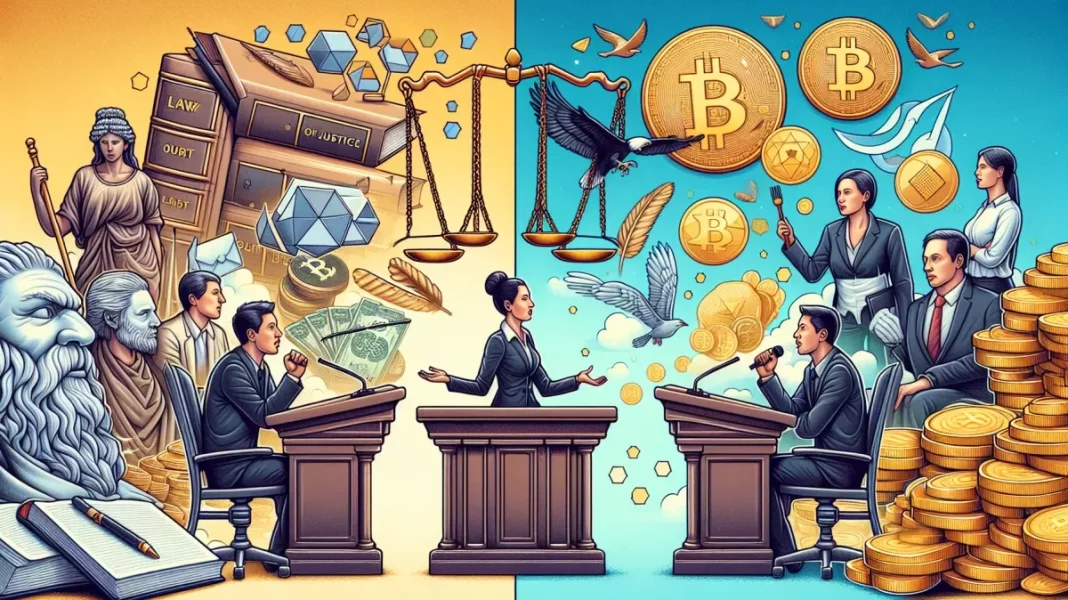In society’s current zeitgeist, cryptocurrencies like Bitcoin increasingly take center stage, disrupting traditional axes of power, and challenging longstanding regulations. These digital currencies bring forth a paradigm shift that various institutions struggle to keep up with. One particular sector that paints an interesting portrait of this dynamic is the gambling industry. The debate on anti-gambling laws vis-a-vis the burgeoning cryptocurrency freedom is particularly intriguing.
Traditional anti-gambling laws have had a significant stranglehold on the gambling industry, curtailing its reach while heavily regulating its activities. However, with the arrival of cryptocurrencies, the gambling landscape has been dramatically transformed. The shifting sands of the gambling industry offer a riveting study into this ongoing debate that presents numerous complexities.
ANTI-GAMBLING LAWS: A BRIEF HISTORY
Regulations on gambling activities have been a significant aspect of societal norms since time immemorial. Governments worldwide have long been wary of potential social issues connected to gambling, such as addiction, loss of income, and criminal activities. As such, lawmakers have endeavored to institute laws aiming to regulate and control gambling.
In the United States, laws like the Federal Wire Act of 1961 initiated a sweeping crackdown against illegal gambling activities. This law essentially makes illegal any betting businesses that used wired communications to accept bets[^1^]. Similarly, the Unlawful Internet Gambling Enforcement Act of 2006 targeted online gambling activities by prohibiting businesses from accepting payments relating to bets or wagers over the internet[^2^].
CRYPTOCURRENCIES: THE NEW FRONTIER IN GAMBLING
Cryptocurrencies such as Bitcoin come with the promise of freedom—a stark contrast to the heavily regulated traditional financial systems. These digital currencies offer gamblers a level of anonymity and financial freedom, that conventional channels cannot match. Renowned for their decentralized nature, cryptocurrencies bypass conventional banking systems, making it easier for individuals to engage in online gambling, even in regions where such activities are heavily regulated or outright banned.
Beyond that, Bitcoin and other cryptocurrencies provide gamblers with increased transaction speed and lower fees—an attractive feature that has seen many turning to cryptocurrencies for their gambling activities.
THE DEBATE: ANTI-GAMBLING LAWS VS. CRYPTOCURRENCY FREEDOM
The ongoing debate is a complex one as it essentially pins the principles of regulation against the argument for freedom and autonomy.
Critics argue that the freedom that comes with cryptocurrencies could open the floodgates to a host of problems. Unregulated gambling could lead to a wide array of social issues, such as fostering gambling addictions, enabling criminal activities, or exacerbating financial mismanagement. At its core, critics argue that anti-gambling laws were established to protect individuals and society at large, and allowing cryptocurrencies to circumvent these regulations could prove detrimental to society.
Conversely, proponents of cryptocurrency freedom assert that the use of digital currencies for gambling is a matter of personal freedom and financial autonomy. They propose that cryptocurrencies are a force for democratizing financial systems, and restrictions on the use of these currencies equate to restrictions on the ability to freely transact. They further suggest that regulations give rise to black markets, advocating that legal systems worldwide should adapt to these new developments rather than attempting to suppress them.
As this debate rages on, it is clear that the advent of cryptocurrencies has significantly transformed the gambling landscape, presenting challenges for regulators while opening up new opportunities for gamblers.
THE FUTURE: WHERE DO WE GO FROM HERE?
Legal experts are still grappling with how to navigate this largely uncharted territory. While it is clear that cryptocurrencies present considerable potential, it may be prudent to develop a framework to protect users and society from potential pitfalls. The future could most likely see a balancing act between allowing cryptocurrency freedom and maintaining adequate regulation that safeguards societal interests.
Cryptocurrencies have disrupted the status quo across sectors, underlining the urgency for legislative reevaluation in a rapidly changing world.
As societies grapple with the need for regulation and the promise of freedom offered by cryptocurrencies, it remains evident that the arrival of these digital currencies has brought about sweeping changes in the gambling industry and beyond. What comes next is anyone’s guess, but one thing is certain – innovation will continue at a relentless pace, and society will have to continually adapt to keep up.
[^1^]: United States Department of Justice. (n.d.). The Federal Wire Act. Retrieved from https://www.justice.gov/jm/criminal-resource-manual-2101-prohibition-gambling-businesses
[^2^]: United States Department of Justice. (n.d.). Prohibition on funding of unlawful internet gambling. Retrieved from https://www.federalreserve.gov/bankinforeg/Full%20official%20staff%20interpretations%20text.pdf




